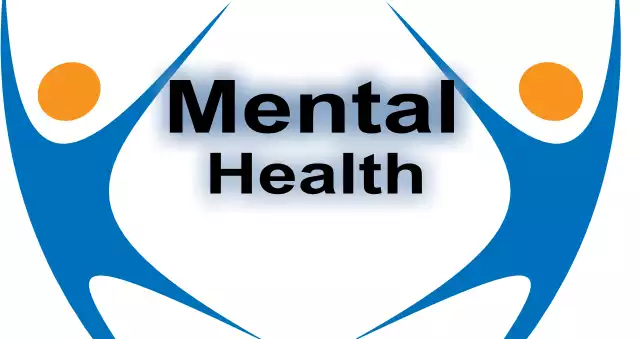Share Stories Suicidal Thoughts
As individuals, we all face challenges and struggles in our lives.
Some are visible to the outside world, while others remain hidden within us.
Mental health and suicidal thoughts are often among the latter, as they are stigmatized and shrouded in silence.
However, it is time to break this silence and bring these important issues to light.
Whether you have personally experienced mental health issues or have been affected by someone who has, it is crucial to understand the impact they have on individuals and our society as a whole.
In this article, you will explore the importance of sharing stories about mental health and suicidal thoughts, and how it can contribute to breaking the stigma and promoting understanding and support.
By acknowledging the struggles and challenges, we can create a safe and open space for individuals to speak up and seek help.
So let’s break the silence and start a conversation about mental health and suicidal thoughts.
Table of Contents Share Stories Suicidal Thoughts
You are not alone, ever.
It is crucial to recognize that no matter what you may be going through, you are not alone.
Many people have faced similar struggles and have found ways to overcome them.
Seeking support from friends, family, or professionals can make a significant difference in your journey towards mental well-being.
Remember that there are countless resources available to provide guidance, understanding, and empathy.
Taking the step to reach out and share your experiences with others can create a sense of connection and remind you that you are not alone in your journey.
Together, we can break the silence surrounding mental health and suicidal thoughts, supporting one another as we navigate these challenges and strive for a brighter future.
Seeking help is strength, not weakness.
In the process of addressing mental health challenges and suicidal thoughts, it is essential to understand that seeking help is not a sign of weakness, but rather an act of strength.
Recognizing the need for support and reaching out to professionals demonstrates courage and a commitment to your own well-being.
It takes strength to acknowledge that you may require guidance and assistance in navigating these difficult emotions.
By seeking help, you are taking proactive steps towards healing and growth.
Remember, you are not alone in this journey, and reaching out to professionals can provide you with the tools and strategies necessary to overcome the obstacles you face.
Embrace the strength within you and allow yourself to receive the support you deserve.
Together, we can break the silence and create a community of resilience and understanding.
Your mental health matters, always.
Ensuring the well-being of your mental health is a lifelong commitment.
It is important to prioritize self-care, self-awareness, and self-compassion in order to maintain a healthy and balanced state of mind.
Your mental health impacts every aspect of your life, from your relationships and productivity to your overall happiness and fulfillment.
Taking the time to check in with yourself, identify and address any emotional or psychological challenges, and seeking professional help when needed are crucial steps in maintaining optimal mental well-being.
Remember, your mental health matters, always, and investing in your own mental well-being is a decision that will positively influence your life now and in the future.
Sharing your story empowers others.
By sharing your personal story of mental health struggles and suicidal thoughts, you have the power to inspire and empower others who may be going through similar challenges.
Your courageous act of vulnerability can create a sense of connection and understanding, letting others know that they are not alone in their struggles.
It provides a platform for open and honest conversations about mental health, breaking down the stigma that often surrounds these topics.
Sharing your story can also offer hope to those who may be in a dark place, showing them that recovery and healing is possible.
Through your words, you have the ability to foster a supportive and compassionate community, where individuals feel safe to share their own experiences and seek the help they need.
Your story has the potential to make a difference in someone’s life, reminding them that there is light at the end of the tunnel and encouraging them to seek the support they deserve.
Silence only perpetuates stigma.
Remaining silent about mental health struggles and suicidal thoughts only perpetuates the stigma surrounding these important topics.
When we choose not to speak up and share our experiences, we allow stereotypes and misconceptions to persist, further isolating those who are already struggling.
By breaking the silence and sharing our stories, we challenge societal norms and create opportunities for education and understanding.
When we open up about mental health, we create a space where others feel comfortable doing the same, fostering a culture of empathy and support.
It is through our collective voices and willingness to address these issues head-on that we can begin to dismantle the stigma and pave the way for a more compassionate and inclusive society.
Together, we can create a world where mental health is treated with the same importance and understanding as physical health.
You are not defined by thoughts.
In the journey of mental health and self-discovery, it is important to recognize that you are not defined by your thoughts.
Our minds can be a complex web of emotions, beliefs, and perceptions that can sometimes lead us astray.
However, it is crucial to remember that thoughts are not permanent or absolute truths about who we are as individuals.
They are merely passing experiences that come and go.
By understanding this, you can gain a sense of detachment from negative or self-limiting thoughts, allowing you to observe them without judgment or attachment.
Embracing this perspective empowers you to cultivate a healthier mindset and make choices that align with your true self, rather than being solely influenced by passing thoughts.
Remember, you have the ability to shape your own narrative and define your worth beyond the transient nature of thoughts.
Your feelings are valid, always.
In the realm of mental health and emotional well-being, it is essential to acknowledge and honor the validity of your feelings, regardless of their intensity or origin.
It is common for individuals to question the legitimacy of their emotions, especially when faced with societal expectations or personal doubts.
However, it is important to recognize that your feelings are a genuine reflection of your inner experiences and should never be dismissed or invalidated.
Whether you are experiencing joy, sadness, anger, fear, or any other emotion, they are all valid and deserving of acknowledgment.
Embracing this understanding allows you to embrace self-compassion and prioritize your emotional well-being.
Remember, your feelings serve as valuable guides in navigating your personal journey, and it is crucial to honor and respect them, always.
Recovery is possible, believe it.
Throughout your journey towards mental health and healing, it is crucial to cultivate a belief in the possibility of recovery.
Despite the challenges and obstacles you may face, it is important to remember that healing is within your reach.
Recovery is not a linear path; it is filled with ups and downs, setbacks and victories.
It requires dedication, perseverance, and the support of a strong network.
But it is possible.
By committing to self-care, seeking professional help, and surrounding yourself with a supportive community, you are taking the necessary steps towards your own healing and growth.
So, believe in the power of recovery, believe in your own strength, and trust that brighter days lie ahead.
Speak up, reach out, heal.
In the journey towards mental health and healing, one powerful mantra to remember is to speak up, reach out, and heal.
By breaking the silence surrounding mental health and suicidal thoughts, you empower yourself and others to find solace and support.
Sharing your experiences and struggles with trusted individuals, whether it be friends, family, or mental health professionals, can provide a sense of relief and understanding.
It is important to remember that you are not alone in your struggles, and by reaching out, you allow others to offer guidance and encouragement.
Healing begins when we open up, allowing ourselves to be vulnerable and seeking the help we need.
Together, we can forge a path towards recovery and create a safe and supportive environment for those who are suffering.
Your story can save lives.
By sharing your personal story of mental health and overcoming suicidal thoughts, you have the potential to save lives.
Your experiences, struggles, and triumphs can resonate deeply with others who may be going through similar challenges.
Through your story, you can provide hope, validation, and inspiration to those who may feel isolated and hopeless.
Your willingness to break the silence and share your journey can create a ripple effect, encouraging others to seek help, find solace, and begin their own path to recovery.
Each story shared is a powerful reminder that there is light at the end of the tunnel, and that no one has to face their mental health struggles alone.
Your story has the power to touch hearts, change perspectives, and ultimately, save lives.
Overall, it is important to recognize the courage and strength it takes to open up about mental health struggles and suicidal thoughts.
By breaking the silence and sharing your story, you are not only helping yourself, but you are also creating a safe space for others to do the same.
Remember that it is okay to not be okay and seeking help is a sign of bravery, not weakness.
Keep talking, keep listening, and together we can continue to break the stigma surrounding mental health.
Thank you for being a part of this important conversation.
FAQ
How can sharing personal stories of mental health struggles and suicidal thoughts help break the silence surrounding these topics?
By sharing your personal stories of mental health struggles and suicidal thoughts, you can help break the silence surrounding these topics.
Your experiences can resonate with others who may be going through similar challenges, making them feel less alone and more understood.
Your courage to open up can inspire others to do the same, creating a supportive community where people feel safe to discuss their mental health.
Sharing personal stories also helps educate society about the realities of these issues, reducing stigma and encouraging empathy.
By speaking out, you can play a crucial role in fostering understanding, support, and ultimately, in saving lives.
What are some potential benefits and drawbacks of sharing personal stories of mental health and suicidal thoughts?
When you share personal stories of mental health and suicidal thoughts, you have the potential to create a sense of connection and understanding among others who may be going through similar experiences.
By sharing your struggles, you can help reduce stigma and promote empathy.
However, it’s important to be cautious as there can be drawbacks.
Sharing personal stories may make you feel vulnerable and exposed, and it can be emotionally taxing.
It may also invite judgment or unwanted attention.
It’s crucial to prioritize your well-being and consider the potential impact before deciding to share personal stories of mental health and suicidal thoughts.
How can individuals ensure that sharing their stories of mental health and suicidal thoughts is done in a safe and supportive environment?
To ensure that sharing your stories of mental health and suicidal thoughts is done in a safe and supportive environment, you should seek out trusted individuals who are empathetic and understanding.
Find support groups or online communities where you can connect with people who have similar experiences.
It’s important to establish boundaries and communicate your needs when sharing your story.
Be selective about who you share with, and assess their capacity to provide support.
Remember to prioritize your mental well-being and seek professional help when necessary.
What role can storytelling play in reducing the stigma associated with mental health and suicidal thoughts?
Using storytelling as a tool, you can help break the stigma surrounding mental health and suicidal thoughts.
By sharing personal experiences and emotions, you allow others to see the reality of these struggles, promoting empathy and understanding.
Through storytelling, you create a safe space for open conversations, educating people about mental health and challenging stereotypes.
By highlighting the universality of these struggles, you empower individuals to seek help and support.
Your stories have the power to inspire change, encouraging society to prioritize mental health and fostering a more compassionate and inclusive environment for those affected.
How can society better support individuals who choose to share their stories of mental health and suicidal thoughts?
You have the power to make a difference.
By creating a safe, non-judgmental space, society can support those who bravely share their stories of mental health and suicidal thoughts.
Listen without interruption, validate their experiences, and offer empathy and understanding.
Educate yourself about mental health to break the stigma.
Encourage open conversations and promote access to mental health resources.
Be a source of encouragement and remind them that seeking help is a sign of strength.
Together, we can foster an environment of acceptance and support, ensuring that no one feels alone in their journey.







